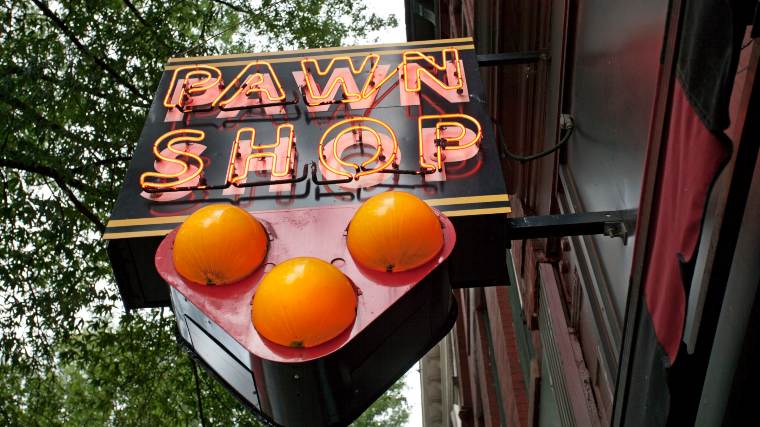Tips for Buying and Selling at a Pawn Shop

Pawn shops have had something of a revival over the past decade or so (though they never really went away), thanks to reality TV shows like Pawn Stars. While the mainstream media attention may be new, the industry is not. In fact, the history of pawn shops dates back more than 3,000 years.
In many ways, the pawn shops of today operate as mini-banks for millions of unbanked Americans and they also serve places for people of all backgrounds to buy and sell items. America’s 12,000 or so pawn shops deal with a huge variety of items including musical instruments, jewelry, and electronics.
What does pawning mean?
“Pawning” means that you give the pawn shop an item in exchange for a cash loan. For example, you might give them your mountain bike as collateral for a $75 loan. If you repay the loan by a certain date, typically 90 to 120 days after you pawn the item, you can retrieve your bike. The loan repayment amount will include interest and fees that are regulated by the state.
If you don’t repay the money on time, the pawn shop takes ownership of the bike and can offer it for resale. Pawn shops also purchase items outright to resell.
Working with a pawn shops can be a good deal for both a seller and buyer, but not always. The following are some tips and advice for selling and buying at a pawn shop.
How to Sell to a Pawn Shop
Find the right pawn shop
Do some online research to see what others have said about working with area pawn shops. Then, choose a reputable shop and broker you feel comfortable with.
Also, know that some pawn shops specialize in certain items. For example, if you have an antique, look for a pawn shop that has experience buying and selling antique items.
Know if you want to pawn or sell
Pawn shops will give you the choice, so educate yourself on the options and know the ups and downs of each before you go in. The decision should be based on a number of things including your ability to repay a loan and the value you place on the item you are pawning or selling.
Negotiate
Understand that pawn store owners are resellers, not collectors. Just because a collector values your vintage vinyl at $100, doesn’t mean that you will get that from a pawn broker. Set a minimum price ahead of time so you don’t make a snap decision you’ll regret later.
Be prepared to prove your claims
For example, if you bring in a valuable piece of jewelry, consider having a professional jeweler write up an appraisal so you can prove the piece’s worth. If the item runs on batteries, make sure it has fresh batteries in it so you can show that it works. Bringing items in their original packaging is always helpful.
Show things in their best light
A layer of dust might make sense on an antique, but not on your printer. Imagine that you were going to purchase the item—what would you want it to look like?
Pay on time
If you pawn an item for a loan, be sure to pay back the loan plus interest and fees on time and as agreed. Not doing so will cause you to forfeit your item or extend the loan which will carry additional charges.
How to Buy From a Pawn Shop
Do your research
It doesn’t matter what an item costs when it is new; some things hold their value much more than others. Know the value of an item in its existing condition before you make a purchase.
Negotiate
Every item will have a price, but the sticker price should just be considered your starting point. Pawnbrokers have a lot of experience negotiating, so make sure you have a limit in mind before you begin bargaining. Also, understand that, in general, the longer something stays in the store, the more the pawnbroker will be willing to lower the price.
Read the fine print
Some pawn shops offer guarantees of authenticity, but others do not. Some have lenient return polices while others say “all sales are final.” The policies can range widely, so read the policies carefully.
Pay with cash
The pawnbroker might be more apt to take your offer if you are paying with cash. Plus, paying with cash will assure that you don’t go over your set limit and will keep you from accruing credit card debt.
Finally, whether you’re a seller or a buyer, it is worth your time to consider your other options before going to the pawn shop.While working with a pawn shop may be convenient, you might be able to get a better deal on Craigslist, eBay, or even in a garage sale.
And if you're selling items to help cover bills or debts, please connect with a nonprofit financial counselor to discuss your options and find stability.
















